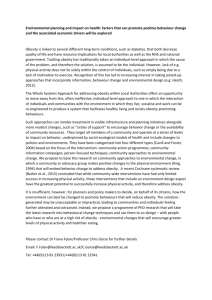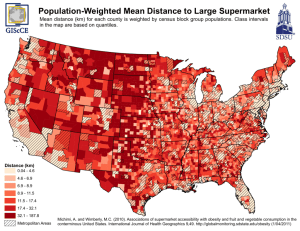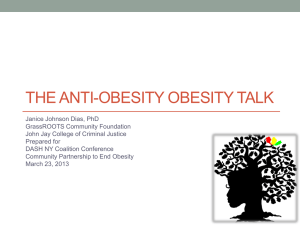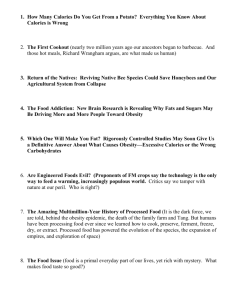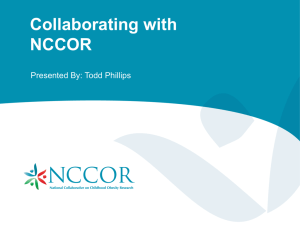Heterogeneity in Causes and Development of the Obesity Epidemic
advertisement
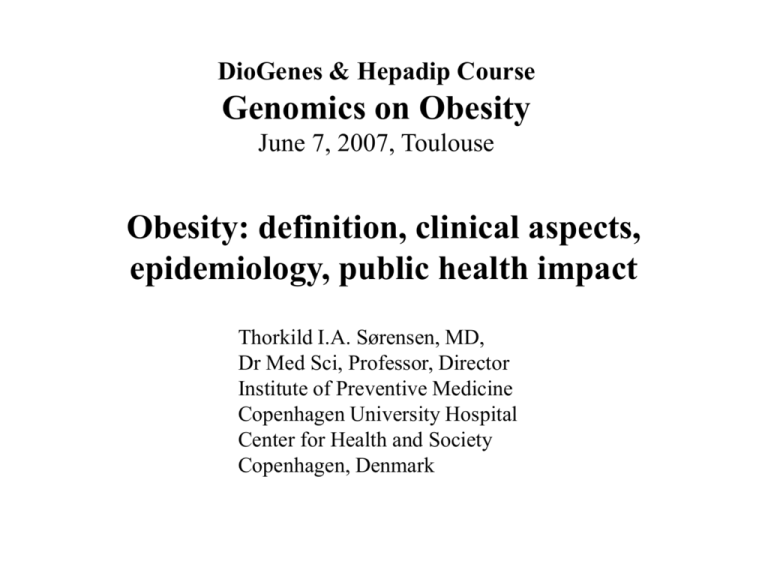
DioGenes & Hepadip Course Genomics on Obesity June 7, 2007, Toulouse Obesity: definition, clinical aspects, epidemiology, public health impact Thorkild I.A. Sørensen, MD, Dr Med Sci, Professor, Director Institute of Preventive Medicine Copenhagen University Hospital Center for Health and Society Copenhagen, Denmark Obesity – outline • • • • • • • • Definitions Occurrence Causes Prevention Current health problems Prognosis Treatment Public health impact Obesity – Definitions • • • • WHO – pragmatic Functional? Origin? Needs for change? Obesity – Occurrence • • • • • Of what? How do we measure it? Is it incidence & persistence Place, groups & time Heterogenity – remember! Obesity – Causes • Positive energy balance • What is a cause? • How do we find causes? Obesity – Real causes • • • • • • Do you know them? Know or believe? Genes, of course! What else? Identifiable? Instability? Obesity – Prevention • • • • What is it? What are we doing? Does it work? What shall we do? Obesity – Current health problems • What bothers the obese themselves? • Why do they request help? • Do they understand their own problems? Obesity – Prognosis • • • • • What is prognosis? How do we study it? Of the condition itself? Of risk of co-morbidities? Of dying? Obesity – Treatment • • • • • What is treatment? What are the goals? How do we do it? Does it work? How should we do it? Obesity – Public health impact • • • • What is public health? What does impact mean? Why is it important? Hierachy of solutions Obesity – Translational science • Basic science: let’s understand the reality • Clinical science: let’s change the reality for those already sick • Public health science: let’s change the reality for those not yet sick • To achieve the goals we need to translate the understanding to changes! MUST BE POSSIBLE BUT MAY NEED MORE RESEARCH BASED ON NEW PARADIGMS?
